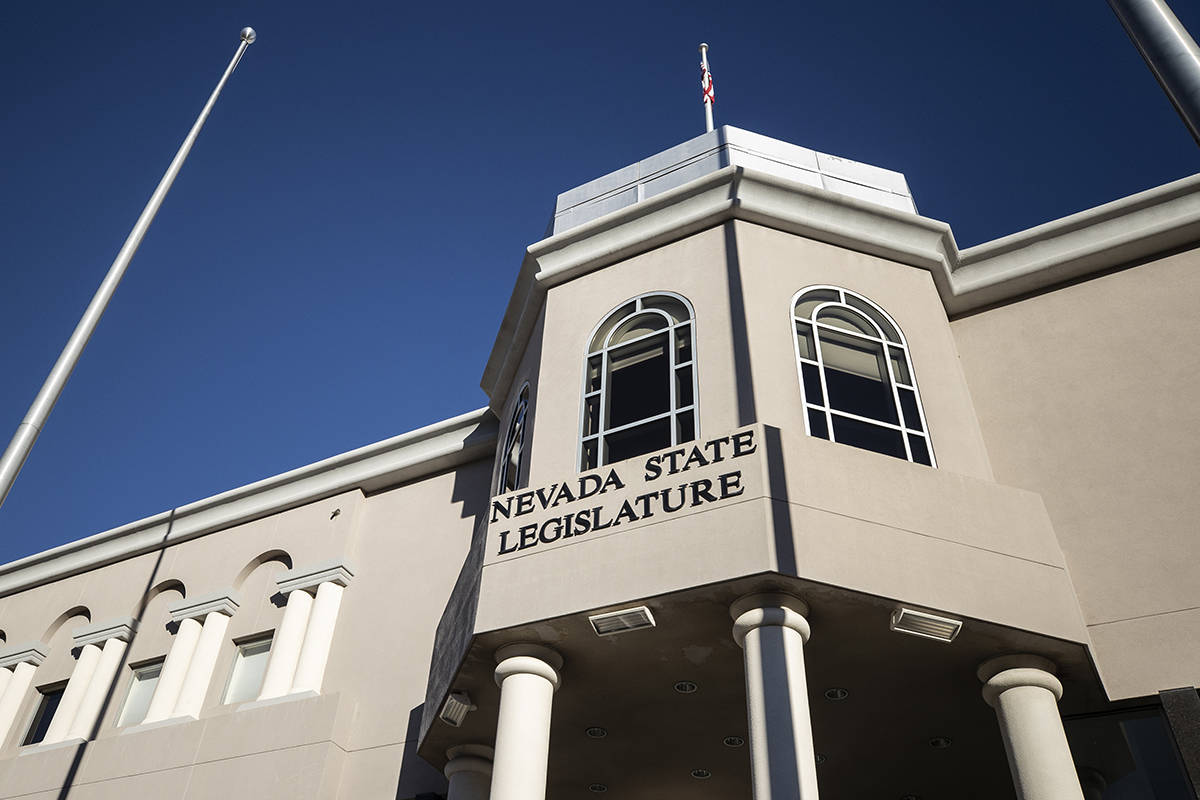Bill to limit asset forfeiture draws opposition
CARSON CITY — A scaled back effort at civil asset forfeiture reform in Nevada, a perennial but habitually unsuccessful legislative objective, again met opposition in committee Monday from law enforcement amid concerns over what the change could cost their agencies in lost funding and additional workloads.
Assembly Bill 425 proposes reforms to the forfeiture legal process aimed at helping innocent people whose assets might be targeted in a criminal case filed against someone else, and who might opt to forgo fighting a forfeiture in court if the amount at stake is too small to be worth the legal costs.
As such, reform advocates say, the current system disproportionately affects poorer people, for whom the loss of a car to forfeiture, for example, could have significant impact.
Under the current process, a cash or asset forfeiture proceeding happens after a conviction in an underlying criminal case, but is handled as a separate civil action. Advocates of the change want that the forfeiture attached to and decided in the criminal case — as is done in federal court and four states — instead of fighting in a separate civil court proceeding where the party with assets at risk would have to get a new lawyer.
Small amounts seized
In testimony before the Assembly Judiciary Committee Monday, backers of the proposal cited figures that showed the median amount seized in a forfeiture in Nevada is just more than $900, an amount less than what a lawyer might typically charge to get it back.
“The current forfeiture scheme is broken because it doesn’t address all of these small amounts that are seized and subsequently forfeited, where someone doesn’t have the resource to appear in a civil case and to litigate whether or not they should have their money back,” said Lisa Rasmussen, a Las Vegas attorney. “It’s much easier to do this in the context of the criminal case.”
In a nod to previous failures of broader reform measures, the bill’s parameters would apply only in low-level drug sale and trafficking cases, not in other criminal cases. An amendment would further limit it to amounts less than $5,000.
Rasmussen and Lee McGrath, an attorney from the libertarian public interest law firm Institute for Justice, noted that the bill would not hamstring cases that involve federal joint task forces or larger forfeitures, such as those involving drug cartels.
Police, cities opposed
Law enforcement and local government interests nonetheless opposed the bill. Local entities are permitted to keep a share of forfeited assets and would lose some funding even under the latest bill’s limited aim at drug cases. Opponents used that limitation to argue against the bill, claiming it amounted to unequal enforcement.
Testifying in opposition, the city of Henderson, the Metropolitan Police Department, the Washoe County sheriff’s department and the Nevada District Attorneys Association also defended the current process and raised concerns about lost revenue from forfeitures and increased workloads for prosecutors. A fiscal note submitted by Metro Police cited a $500,000 per year impact.
The agencies also objected to a provision that sets a lower limit on asset forfeitures of $200.
“We should remember that the purpose of forfeiture law is that crime should not pay,” said John Jones, of the district attorneys association. The $200 limit, he said, “means that crime can pay in increments of $200 or less.”
The bill may come back for amendments and a vote this week ahead a Friday deadline for committee action.
Contact Capital Bureau reporter Bill Dentzer at bdentzer@reviewjournal.com. Follow @DentzerNews on Twitter.



















